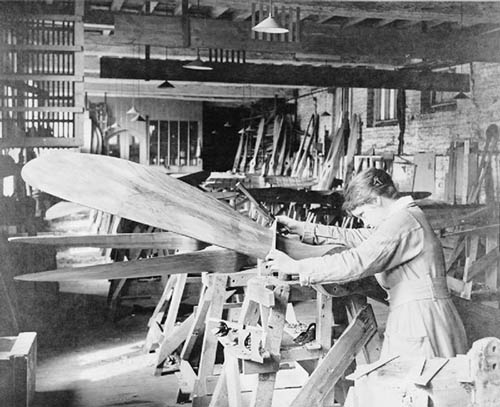In a little under seven months from now, we will witness the centennial of the First World War. It’s a war that Americans have failed to connect with, for a number of reasons. One, we entered the conflict in its second-to-last year, and even then, our soldiers didn’t engage in significant action until 1918. Two, after the war, we disengaged from the outside world and became focused on domestic affairs, further distancing ourselves from the war’s effects. And three, it happened so long ago that no one involved is alive.
It’s true that the First World War is no longer part of memory, only history. Still, it should be noted that, for all belligerents, the last surviving veterans passed away only a few years ago. In the U.K., the “Last Fighting Tommy,” Harry Patch died in 2009 and still vividly recalled his experience at the Third Battle of Ypres in 1917. For the US., Frank Buckles had served in the Army and drove ambulances. He died just three years ago.

Therefore, on an individual level, we aren’t that far removed from the conflict. In terms of the war’s larger consequences—its effects on politics, international relations, governments, diplomacy, cultures—we aren’t removed at all. We exist in the world created by the First World War, in a way that people don’t fully appreciate.
The national borders of today’s Middle East were drawn up by the Allied powers with little regard for local considerations. Both British and French diplomats had promised various Arab leaders support and independence as long as they fought with them against the Ottoman Empire. But the Allies were playing a cynical game. As they made these promises, they secretly concluded their own aims in the Sykes-Picot Treaty. This agreement split the entire Middle East between the British and French Empires. Some places would be directly controlled; others would fall under their respective “spheres of influence.” In 1917, the Bolsheviks—another direct product of the war—published this treaty for the whole world to see. Ever since, Arab nations have, rightfully so, looked upon the West with extreme caution and suspicion.
The Cold War, though it’s now been over for more than two decades, was born out of the Bolshevik Revolution in Russia. Traditionally, Americans think of the Cold War as starting after World War II, but an argument can be easily made that it really began in 1917. The war gave birth to the world’s first communist state. Ever since, every communist movement couldn’t help but compare itself to the Soviets. Today’s generation doesn’t appreciate how much, on a day-to-day basis, the Cold War shaped our country’s actions. It’s legacy still casts shadows over regions that used to be part of the Soviet Union. Just look at Belarus and Ukraine’s continuing struggle with authoritarianism. They may not be communist, but they’re hardly democratic. Another area of former Soviet republics embroiled in conflict is the Caucasus, notably Chechnya, whose push for independence in 1991 was denied.

Those people who do know a little about the First World War tend to see it as a struggle in futility. They take the view that popular post-war works like All Quiet on the Western Front put forth, that it was a pointless conflict with little meaning besides mass death. This is view shaped by hindsight. Unlike those in the immediate aftermath, we know about the rise of Nazism, of the Second World War, and of the Cold War. The fact that it wasn’t “the war to end all wars” has made us see the leaders at the time as naive and has left us with profound cynicism.
Yet that was not the feeling at the time. When the war ended, there was dancing in the streets as would be seen on V-E and V-J day in 1945. Those who fought truly believed that it was a war that had to be fought (especially among the French) and that the war did have a deep meaning. For the ideologues, the war was seen as liberal democracy versus authoritarian militarism. For non-ideologues, it was a war to liberate their land and fellow countrymen: France, Belgium, Serbia, as well as all those countries of Eastern Europe that would come into eventually come into existence like Poland.
One could go on for much longer about the war’s both broad and deep effects still felt today. Many nowadays still look fondly to the pre-1914 years as a lost paradise, much like people in the interwar years did. It was a time of unprecedented globalization, a level of which we wouldn’t see again until long after World War II. Europe was the center of a world that people assumed could only get better. Like many today, people of that era dismissed the idea of a war between Great Powers as impossible: they were too integrated with each other, they had too much in common, and too much to lose if a conflict came. Besides, they reasoned, it had been nearly 100 years since the last ‘Great War’ (Napoleon’s defeat in 1815). They were proved horribly wrong. We’ve made it 69 years. Let’s hope we can surpass their record.
This blog is sponsored by America’s Dental Bookstore – for all your dental books.
| We thank our advertisers who help fund this site. |
|
|